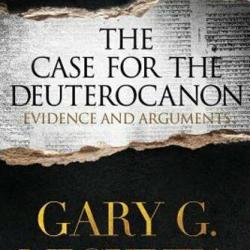Including Extensive Exegetical Analysis of Micah 5:2

Wife Judy’s photograph of the spot where Jesus was born in Bethlehem (October 2014).
*****
This is my fourth and last installment of replies to atheist Jonathan MS Pearce‘ skeptical series, Debunking the Nativity. I have previously responded to his claims about the alleged mistranslation of “virgin” (Isaiah 7:14), supposed irreconcilable differences regarding the death of Herod the Great and biblical chronology, and the genealogies of Christ. Presently, I am responding to his paper, “To Bethlehem or Not to Bethlehem” (12-16-17). His words will be in blue.
***
Through the announcements of the Bible itself, Jesus has to be born in Bethlehem or the prophecies are wrong, or indeed Jesus is invalidated as the true Messiah. Having said this, a case can be made for the fact that this Bethlehem prophecy may just be a contrived and poor reading of the Old Testament. We shall return to this later.
The Prophecies
So what are these prophecies? The main offending verse is Micah 5:2 which states:
“But as for you, Bethlehem Ephrathah,
Too little to be among the clans of Judah,
From you One will go forth for Me to be ruler in Israel.
His goings forth are from long ago,
From the days of eternity.”
Let us remind ourselves of how this fits in with what Luke says of Bethlehem (2:4):
Joseph also went up from Galilee, from the city of Nazareth, to Judea, to the city of David which is called Bethlehem, because he was of the house and family of David…
. . . The first issue with the Micah quote is that it is a mistranslation to claim that the Messiah must be born in Bethlehem since the context and the grammar actually mean that one should conclude, as D.F. Strauss in The Life of Jesus (1860, p. 159) does, as follows:
…the entire context show the meaning to be, not that the expected governor who was to come forth out of Bethlehem would actually be born in that city, but only that he would be a descendent of David, whose family sprang from Bethlehem.
So Matthew and Luke, in using this as a prophetic basis for establishing Davidic heritage, mistranslate the prophecy and feel that they need to get Joseph and Mary to Bethlehem so that Jesus could be born in the place so apparently prophesied.
David Strauss was a notorious theologically liberal “higher critic” of Scripture (see a book that critiques work, by a contemporary). Let’s see how orthodox exegetes of Scripture comment upon Micah 5:2. For example, the 10-volume Commentary on the Old Testament by Karl Friedrich Keil (1807-1888) and Franz Delitzsch (1813-1890) states:
(Note: We must reject in the most unqualified manner the attempts that have been made by the Rabbins in a polemical interest, and by rationalistic commentators from a dread of miracles, to deprive the words of their deeper meaning, so as to avoid admitting that we have any supernatural prediction here, whether by paraphrasing “His goings forth” into “the going forth of His name” (we have this even in the Chaldee), or the eternal origin into an eternal predestination (Calv.), or by understanding the going forth out of Bethlehem as referring to His springing out of the family of David, which belonged to Bethlehem (Kimchi, Abarb., and all the later Rabbins and more modern Rationalists). According to this view, the olden time and the days of eternity would stand for the primeval family; and even if such a quid pro quo were generally admissible, the words would contain a very unmeaning thought, since David’s family was not older than any of the other families of Israel and Judah, whose origin also dated as far back as the patriarchal times, since the whole nation was descended from the twelve sons of Jacob, and thought them from Abraham. (See the more elaborate refutation of these views in Hengstenberg’s Christology, i. p. 486ff. translation, and Caspari’s Micha, p. 216ff.))
The announcement of the origin of this Ruler as being before all worlds unquestionably presupposes His divine nature; but this thought was not strange to the prophetic mind in Micah’s time, but is expressed without ambiguity by Isaiah, when he gives the Messiah the name of “the Mighty God” (Isaiah 9:5; see Delitzsch’s comm. in loc.). We must not seek, however, in this affirmation of the divine nature of the Messiah for the full knowledge of the Deity, as first revealed in the New Testament by the fact of the incarnation of God in Christ, and developed, for example, in the prologue to the Gospel of John. Nor can we refer the “goings forth” to the eternal proceeding of the Logos from God, as showing the inward relation of the Trinity within itself, because this word corresponds to the יצא of the first hemistich. As this expresses primarily and directly nothing more than His issuing from Bethlehem, and leaves His descent indefinite, מוצאתיו can only affirm the going forth from God at the creation of the world, and in the revelations of the olden and primeval times.
The compelling proof that Micah 5:2 was always regarded as a prophecy that the Messiah would be born in Bethlehem comes from Jewish sources (before Christ) that concur with this judgment. Here we have recourse to the monumental work, Christology of the Old Testament and a Commentary on the Messianic Predictions, by E. W. Hengstenberg (translated by Theodore Myer; Edinburgh: T & T Clark, vol. 1 of 4, second edition, 1868). In his extraordinarily scholarly commentary on the passage in question, Hengstenberg states:
This History [of Jewish interpretation], as to its essential features, might, a priori, be sketched with tolerable certainty. From the nature of the case, we could scarcely expect that the Jews should have adopted views altogether erroneous as to the subject of the prophecy in question; for the Messiah appears in it, not in His humiliation, but in His glory—rich in gifts and blessings, and Pelagian self-delusion will, a priori, return an affirmative answer to the question as to whether one is called to partake in them. But, on the other hand, the prophecy contains a twofold ground of offence which had to be removed, and explained away at any expense. One of these, the eternity of the Messiah—which was in contradiction to the popular notions, and conceivable only from a knowledge of His Godhead—could not but exist at all times; while the second of these—the birth at Bethlehem—made its appearance, and exercised its influence, only after the birth of Christ. That this should be set aside, was demanded by two causes. First, there was the desire of depriving the Christians of the proof, which they derived from the birth at Bethlehem, for the proposition that He who had appeared was also He who was promised. . . .
1. The reference to the Messiah was, at all times, not the private opinion of a few scholars, but was publicly received, and acknowledged with perfect unanimity. As respects the time of Christ, this is obvious from Matt. ii. 5. According to that passage, the whole Sanhedrim, when officially interrogated as to the birth-place of the Messiah, supposed this explanation to be the only correct one. But if this proof required a corroboration, it might be derived from John vii. 41, 42. In that passage, several who erroneously supposed Christ to be a native of Galilee, objected to His being the Messiah on the ground that Scripture says: ὅτι ἐκ τοῦ σπέρματος Δαβὶδ καὶ ἀπὸ Βηθλεὲμ τῆς κώμης, ὅπον ἦν Δαβίδ, ὁ Χριστὸς ἔρχεται. But even after Christ had appeared, the interest in depriving the Christians at once of the arguments which, in their controversies, they derived from this passage, was not sufficiently strong to blind the Jews to the evident indications contained in this passage, or to induce them to deprive themselves of the sweet hope which it afforded. . . . All the Jewish interpreters adhere to the Messianic interpretation, and in this they are headed by the Chaldee, who paraphrases the words ממך לי יצא in this way: מנך קדמי יפק משיחא, i.e., From thee Messiah shall go out before me. (pp. 490-492)
That, in the prophecy under consideration, Bethlehem is marked out as the birth-place of the Messiah, was held as an undoubted truth by the ancient Jews. This appears from the confident reply of the Sanhedrim to the question of Herod as to the birth-place of Christ. And it is not less evident from John vii. 42. The circumstance that, after the tumult raised by Barcochba, not only Jerusalem, but Bethlehem also, was, by the Emperor Adrian, interdicted to the Jews as a residence, renders it probable that this interpretation was not given up immediately after the death of Christ. But even after this edict of Adrian, and after the difficulty had appeared in all its force, they did not, for a considerable time, venture to assert that the prophecy knew nothing of Bethlehem as the birth-place of the Messiah. It is with the later Rabbinical interpreters only, who were better skilled in the art of distorting, that this assertion is found. The ancient Jews endeavoured to evade the difficulty by the fable, dressed up in various ways, that the Messiah was indeed born at Bethlehem, on the day of the destruction of the temple, but that, on account of the sins of the people. He was afterwards carried away by a storm, and had, since that time, remained, unknown and concealed, in various places. Thus speak the Talmud, the very ancient commentary on Lamentations, Echa Rabbati, and the very old commentary on Genesis, Breshith Rabba (compare the passages in Raim. Martini, S. 348-50; Carpzovius and Frischmuth, l.c.). Indeed, we can trace this fiction still farther back. (pp. 495-496)
The Rabbinical interpreters felt, however, that this fiction, being destitute of all warrant, was of no use to them in their controversies with Christians; and it was to these that their view was chiefly directed. Hence they sought to remove the difficulty by means of the interpretation; and as all had the same interest, the result was that the distorted explanation became as generally prevalent, as the correct one had formerly been. Kimchi, Abenezra, Abendana, Abarbanel, and, in general, all the later Rabbins (compare the passages in Wichmannsh. l. c. S. 9), maintain that Bethlehem is mentioned here as the birth-place of the Messiah indirectly only,—in so far only as the Messiah was to be descended from David the Bethlehemite. There cannot well be a prepossession in favour of this exposition. The circumstance that, formerly, no one ever thought that it was even possible to explain the passage under review in any other way than that, in it, Bethlehem is spoken of as the birth-place of the Messiah, and that this exposition was discovered and introduced, only at a time when the other could no longer be received, raises, a priori, strong suspicions against it. (p. 497)
Thus, we see that Strauss merely resurrected polemical Jewish objections to Bethlehem as Jesus’ birthplace, after His death. Previously, Jewish scholars / rabbis agreed that the Messiah would be born in Bethlehem. Hengstenberg even notes a second argument that Jonathan picks up: that Jesus was born in Nazareth:
But the Jews endeavoured, in another way, to wrest from Christian controversialists the advantage afforded by this passage. They denied altogether that Christ was born at Bethlehem. Thus Abr. Peritsol (compare Eisenmenger, l. c. S. 259): “Since they called Him Jesus the Nazarene, and not Jesus the Bethlehemite, it is to be inferred that He was born at Nazareth, as it is written in the Targum of Jerusalem.” Upon this point, however, there existed no unanimity among them. David Gans, in the Book Zemach David, mentions, without any remark, Bethlehem as the birth-place of the Messiah (S. 105 of Vorst’s translation). (p. 499)
The urge to deny that Micah 5:2 teaches a birth in Bethlehem is seen to have its origin in contra-Christian Jewish polemics. Theological liberals utilized these strains for their own destructive ends, and atheists use the latter’s commentary to bolster up their own skeptical ideology: all the way to a mythical Jesus. Now it’s standard practice among atheists, Muslims, and heretics like Jehovah’s Witnesses (all of whom I have debated many times; hence I’m well-familiar with the tactic), to prominently cite theologically liberal self-identified “Christian” scholarship, because the latter no longer adheres to traditional Christian orthodoxy of interpretation. For this reason, Jonathan often cites (and praises to the skies) Catholic exegete Fr. Raymond Brown, who was very liberal in theology, and he quotes ultra-liberal Protestant David Strauss above. These are the reliable “go to” guys.
If Jesus had been born in Nazareth, he still would have fulfilled the prophecies utilised by the Gospel writers.
This is untrue, as just demonstrated at length. The Messiah had to be born in Bethlehem: as was the consensus of Jews before Christ and orthodox Christians ever since. Jesus claimed to be the Messiah and was, in fact, born there.
If we look at the potential theological contrivances in the fulfilment of the prophecy that sees the Messiah being born in the ‘city of David’ in light of the added evidence of the genealogies, then it is hard not to be cynical. With a faulty and clearly manufactured set of family trees which rely on some dodgy usages of the Old Testament and genealogy, a shadow is cast upon the idea that Bethlehem, as a birthplace, is not only prophesied, but seemingly fulfilled.
Not in the slightest. Jonathan was incorrect regarding the genealogies (as I showed in my last installment), and I believe that the present critique is equally lacking in compelling argumentation and persuasiveness..
It is not only the apparent shoehorning of Jesus into a Bethlehem prophecy but the plethora of other issues that cause a sceptic to doubt the veracity of Bethlehem being Jesus’ birthplace. Let us look at all of the evidence which points to the notion that Jesus might well have been born elsewhere.
Yes, let’s. I’m delighted to have the opportunity to demonstrate the weak and insubstantial nature of this so-called “evidence”.
Firstly, there is a serious lack of mention of Bethlehem in any other writing in the New Testament.Although absence of evidence is often claimed (by Christians) as not being evidence of absence, it is hard to deny the force of the lack of mention of Bethlehem. The Gospels of Matthew and Luke are the only places in which it is mentioned. Neither do Mark, John, and importantly, nor does Paul corroborate the claims of the other two.
Actually (contra Jonathan’s claims), it is mentioned also in John 7:42 (RSV): “Has not the scripture said that the Christ is descended from David, and comes from Bethlehem, the village where David was?” But absence of further mention (minus one) is an irrelevancy, anyway. It’s mentioned where it makes sense: in the accounts of Jesus’ birth, and a reference back to His birth later.
Mark’s account starts at the beginning of Jesus’ ministry, which is about thirty years after His birth. And so it says that “Jesus came from Nazareth of Galilee” (1:9) because that was His hometown, where He grew up.
It gets slightly more problematic for those who are pro-Bethlehem in that it seems that Jesus was born in Nazareth.
The only times that the Bible refers to Jesus’ birth, is when it states that the birth was in Bethlehem:
Matthew uses the words “born in Bethlehem” (Mt 2:1; cf. 2:1b-6, in which the wise men and Herod make reference to His birth there).
Luke has Mary and Joseph traveling to Bethlehem (2:4), the “city of David”: where Jesus was born: “And while they were there, the time came for her to be delivered. And she gave birth to her first-born son” (2:6-7a). In Luke 2:11 an angel proclaims: “for to you is born this day in the city of David a Savior, who is Christ the Lord.”
On the other hand, in all appearances of “Nazareth” in conjunction with Jesus, never once does it say that He was born there. The Bible says that He “dwelt” there (Mt 2:23), that He was “from” there (Mt 21:11; Mk 1:9), that He was “of” Nazareth (Mt 26:71; Mk 1:24; 10:47; 16:6; Lk 4:34, 18:37; 24:19; Jn 1:45; 18:5, 7; 19:19; Acts 2:22; 3:6; 4:10; 6:14; 10:38; 22:8; 26:9), “out of” Nazareth (Jn 1:46), “brought up” there (Lk 4:16), that Jesus called Nazareth “his own country” (Lk 4:23-24), and that both His parents lived in Nazareth before He was born, and after (Lk 1:26 ff [the Annunciation]; Lk 2:4, 39, 51). Not one word about being born in Nazareth occurs in any of those 28 references.
Yet Jonathan tells us that it “seems” that Jesus was born in Nazareth?
Paul is at times understood to be writing, in his letters, to people very interested in the Jewishness of Jesus. If he knew that Jesus was born in Bethlehem and of the Davidic line, you would have thought this would have been a superb mechanism which Paul could have used to argue such Jewishness. Sadly, this evidence is lacking.
This isn’t compelling at all. Paul argued that Jesus was the Jewish Messiah: that’s more than enough “Jewish”! Whenever he calls Him (or contends for Him as) “Christ” he is doing that: it meant “anointed” / “Messiah” in Greek:
Acts 9:22 But Saul increased all the more in strength, and confounded the Jews who lived in Damascus by proving that Jesus was the Christ.
Acts 17:1-3 Now when they had passed through Amphip’olis and Apollo’nia, they came to Thessaloni’ca, where there was a synagogue of the Jews. [2] And Paul went in, as was his custom, and for three weeks he argued with them from the scriptures, [3] explaining and proving that it was necessary for the Christ to suffer and to rise from the dead, and saying, “This Jesus, whom I proclaim to you, is the Christ.”
Acts 18:5 . . . Paul was occupied with preaching, testifying to the Jews that the Christ was Jesus.
Acts 18:28 for he powerfully confuted the Jews in public, showing by the scriptures that the Christ was Jesus.
[plus many many more instances: just search “Christ” in the Pauline epistles in the RSV online version]
Paul proclaimed that Jesus was squarely within Jewish tradition, as the Messiah (and God, as well):
Romans 9:4-6 They are Israelites, and to them belong the sonship, the glory, the covenants, the giving of the law, the worship, and the promises; [5] to them belong the patriarchs, and of their race, according to the flesh, is the Christ. God who is over all be blessed for ever. Amen. [6] But it is not as though the word of God had failed. For not all who are descended from Israel belong to Israel,
2 Timothy 2:8 Remember Jesus Christ, risen from the dead, descended from David, as preached in my gospel, [perhaps implies a birth in Bethlehem, but certainly means “of the Davidic line”: to use Jonathan’s demand]
The Gospel of Mark seems to indicate that Jesus was born in Nazareth. Mark makes no mention, other than Jesus being from Nazareth, of any other place that Jesus could be associated with in the whole of his Gospel. Mark 1:9 declares, “Jesus came from Nazareth in Galilee and was baptized by John in the Jordan.”
So what? This proves nothing whatsoever. As I noted, Mark starts out when Jesus was 30 years old. It’s simply saying that before His ministry began (initiated by His baptism), He lived in Nazareth; therefore, that’s where He “came from”. He went to John in the wilderness, from Nazareth; He was from Nazareth. That was His hometown. He never lived in Bethlehem, so why would anyone say that He was “from” there? This isn’t rocket science.
Take, for example (by analogy), the singer Bob Dylan. He was born in Duluth, Minnesota, but lived in Hibbing, Minnesota from the age of six (I happened to visit this house on our vacation this year: being a big fan). That‘s where everyone who knows anything about him says and understands that he was raised and where he spent his childhood. Consequently, no one ever says that he is “from” Duluth or “of” Duluth or was “brought up” there. Even many avid Dylan fans don’t even know that he wasn’t born in Hibbing.
All of those things are said about Hibbing: precisely as the Bible habitually refers to Nazareth in relation to Jesus. It’s talking about His hometown, where He was always known to live, prior to His three-year itinerant ministry. In the Bible, people were generally named after the places where they were from. Yet Jonathan seems to expect that the Bible should say that Jesus was “of” or “from” Bethlehem, rather than Nazareth, because He was born there. It doesn’t. It says that He was “of” or “from” Nazareth because that was His hometown. And it says that He was born in Bethlehem; never that He was born in Nazareth. All the biblical data is on my side of this contention. All Jonathan has is silence and empty speculation.
As a second analogous example, there is my own father: Graham Armstrong. He was from Essex, Ontario: a small town sixteen miles over the border from Detroit, where he met my mother, and where I grew up. That’s where I always say he was from, as I did during our recent trip all through Canada: noting that I was half-Canadian. My father grew up in Essex. So why would anyone say he was from anywhere else? But he was born in Maidstone, Ontario (now a hamlet of Tecumseh). I don’t think I ever heard in my life, my father saying he was “from Maidstone” (nor did I ever hear anyone else say that).
My wife was born in Wayne, Michigan and lived there a short time, but moved to Detroit till about age ten and then to the suburban Dearborn Heights after that. She would never say she was from “Wayne” if asked where she was from. She’d say “Detroit” or “Dearborn Heights.” Likewise, three of my four children were born in Southfield, Michigan, and one in Dearborn, but they grew up in Detroit and Melvindale. Thus, my two oldest would say either Detroit or Melvindale was their hometown (our family lived in the latter for almost 16 years), but never their birthplace city. My two youngest would identify Melvindale as their childhood hometown.
I was both born and raised (first seventeen years) in Detroit, so I could say I was “from” there in either sense: but that’s not analogous to the case of Jesus. The bottom line is that skeptics of the Bible almost invariably bring a double standard to it. What is standard usage of language anywhere else is somehow disregarded or ignored when it comes to the same sort of issue as related to the Bible: and it is because of the hostility and polemical agenda of the skeptic or atheist. But it gets downright silly. The present example of this Bethlehem / Nazareth nonsense is an absolutely classic, textbook case of irrational anti-biblical and anti-Christian bias.
Throughout the Gospel, when visiting elsewhere, such as Capernaum (Mark 1:21-28), he is referred to as Jesus of Nazareth. More damaging, perhaps, is the idea in Mark 6 where he returns to Nazareth and this is referred to as his “hometown” (6:1). This is compounded as later in that same episode Mark has Jesus himself saying (6:4), “A prophet is not without honor except in his hometown and among his own relatives and in his own household.” There seems to be little dispute in Mark’s writing that Jesus hailed from Nazareth.
Exactly. That was his hometown; He was “brought up” there (Lk 4:16). This is no proof whatever that He was born there.
Jesus of Nazareth
In common vernacular and biblical terms, it is no coincidence that Jesus is known famously as ‘Jesus of Nazareth’ and not ‘Jesus of Bethlehem’! It seems to me that it is more probable that Jesus was known as Jesus of Nazareth before the Gospels were written so that this title could not realistically be dropped. But since the writers needed Jesus to be born in Bethlehem it was a case of either getting him (i.e. Joseph and Mary) from there to Bethlehem and back again or living in Bethlehem at the birth and then moving to Nazareth, Luckily, the Gospels have both options. Nothing like covering all the bases!
This is all a massive non sequitur and baseless speculation, as just demonstrated.
Matthew vs Luke: The Contradiction
As ever with the nativity, the big issues surround the contradictions between the two source accounts: the Gospels of Matthew and Luke.
Luke has Joseph and Mary living in Nazareth, but in order to fulfil that prophecy, he needs to get them to Bethlehem. The Roman census of Quirinius does the trick for him, and he has them travelling down to Bethlehem to take the census (more on that in many other posts).
Why should a verifiable historical census be regarded as a “trick” of the Gospel writers? And why must Jonathan doubt that Joseph and Mary lived in Nazareth?
Matthew, on the other hand, has Joseph and Mary seemingly already living in Bethlehem. There is no census, not even a mention of it.
Why does it have to be mentioned? That’s a mere arbitrary assumption. Matthew never implies that Bethlehem was their hometown or dwelling-place. He simply writes, “Now when Jesus was born in Bethlehem of Judea . . .” (2:1). Then 2:23 says about Joseph that “he went and dwelt in a city called Nazareth”. There is not a word about Joseph living in Bethlehem as a residence, or about Jesus supposedly being born in Nazareth.
After Herod (who is not mentioned in Luke) chases the family away, killing innocent babies in so doing, the family move to Egypt, probably for a couple of years, and return “out of Egypt” when it is safe and Herod has died, to leave his son in charge.
Herod (the Great) is mentioned in Luke 1:5: “In the days of Herod, king of Judea, there was a priest named Zechari’ah, of the division of Abi’jah; and he had a wife of the daughters of Aaron, and her name was Elizabeth.” [John the Baptist’s mother]
The family then and for the first time move to Nazareth:
So Joseph got up, took the Child and His mother, and came into the land of Israel. But when he heard that Archelaus was reigning over Judea in place of his father Herod, he was afraid to go there. Then after being warned by God in a dream, he left for the regions of Galilee, and came and lived in a city called Nazareth. This was to fulfil what was spoken through the prophets: “He shall be called a Nazarene.”
It is clear that the family had not before lived in Nazareth, directly contradicting Luke.
It’s as simple as that. To get around the problem that Jesus is known as “Jesus of Nazareth” both writers need him being born on the Messianic prophetic town of Bethlehem but later living in Nazareth. Luke has the family already living in Nazareth, born in the Bethlehem by randomly going to a census he didn’t need to go to (more on that later) to return immediately via the Temple in Jerusalem (more on that later) to Nazareth. Matthew has them already living in Bethlehem, born there, and then fleeing to Egypt to return some two years later to Nazareth where they had not previously lived.
The tangles Christians get into to explain away this issue…!
The tangles that atheists get into to explain away clear facts! Jonathan’s view is as clear as mud. Matthew 2:23 (whatever version Jonathan is using) simply says that Joseph “came and lived in a city called Nazareth” (RSV: “he went and dwelt in a city called Nazareth”). Neither Matthew nor Luke say this was the first time, or deny that He ever lived there before. That’s the sort of thing that would have to be present in order to assert a real contradiction.
Christan apologist Glenn Miller, in the midst of writing about the infancy narratives (Nazareth, Bethlehem, and the flight to Egypt), also makes a general point about the atheist / skeptical tendency of charging “contradiction” when in fact there is none:
[I]n the absence of explicit contradiction, one has to interpret the text in such a way as to create a contradiction. There is no contradiction in what the text ‘presents’–at a surface level–but one has to re-create the historical scene “behind” the text, in such a way as to generate a contradiction. In other words, we take textual statements and ‘visualize’ or ‘re-create in our minds’, if you will, the historical sequence behind those texts. Our author [Christopher Hitchens] has taken the gospel narratives and ‘re-created’ the historical scene as one in which the sequences are out-of-synch. But the text itself does not make that explicit at all, and the same textual data can be used to ‘re-create’ in-synch sequences as well (at least two plausible ones, as we will note toward the end of this discussion).
So, in the absence of other data from Hitchens, it would not be unfair of us to say that his ‘flatly contradicting’ statement is unwarranted and needs more evidence to support it. . . .
Note a couple of things from Luke:
Joseph and Mary are from Nazareth
(No mention of pregnancy-crisis)
They travel to Bethlehem
Jesus is born in Bethlehem
Shepherds visit Jesus in Bethlehem
Joseph/Mary/Jesus make a trip to Jerusalem for various Jewish rituals
(No mention of Magi/Flight)
Sometime after the various rituals, they return to their own city of Nazareth.
When we compare this list with Matthew, here’s what we see:
Joseph and Mary are introduced without reference to B or N.
Pregnancy-crisis.
Jesus is born in Bethlehem
(No mention of Shepherds)
(No mention of family trip to Jerusalem for obligatory Jewish rituals)
Visit of Magi
Flight to Egypt
Family settles in Nazareth
But notice that Luke does not indicate a short trip from Nazareth to Jerusalem (for ritual purposes) at all. Neither Matthew nor Luke have such a trip in their respective narrative, so the blog-visitor’s statement (at least the ‘specifically’ part) is inaccurate.
But also notice that both authors are only reporting some of the events—they share the key elements (i.e., Jesus born in royal city of Bethlehem, Jesus ends up in a despised town of Nazareth), and they each select a subset of the history for their particular point (e.g., Luke has the ritual-trip to emphasize the law-biding character of the family and the acceptance of Jesus by godly Jews; Matthew has the Flight/Secret-Return story to emphasize the early rejection of—or indifference to– Jesus by the Jewish leadership)
With the various omissions of each, it is hard to really construct ‘overlapping periods’ in which to situate anything but the barest of events. The centerpiece birth in Bethlehem anchors everything, and the story ‘ends’ at Nazareth in both. Thus, it would take more explicit textual data to make this into a problem. . . .
What emerges from this first-glance look at the objections, is that much is being made from the omissions and silences in the text. To be sure, one could choose to interpret these silences/omissions in such a way as to construe these problems, but how would one defend such choices? Developing arguments from silence is notoriously dangerous, and rarely is certain enough to carry the conclusion single-handedly! . . .
Notice that our objectors have made two unwarranted assumptions in violation of the above: (1) they have assumed that both Matthew and Luke has ‘purported to give a full account of the story’; and (2) that the omitted events were ‘so central a part of such a story’ that they would have been ‘automatically included’.
Biographical writing is notoriously selective—hence the assumption of ‘full account’ will be wrong almost all the time (especially in antiquity).
(“Contradictions in the infancy stories?”, A Christian Thinktank; I have changed his all caps usages to italics]
Miller then goes on to make fascinating observations about (providing many documented examples) the techniques of ancient Hebrew writers, such as “telescoping” and “thematic ordering” (versus chronological ordering). This is precisely the sort of thing that atheists and biblical skeptics invariably miss: because they usually know nothing about it and don’t care to get to know it. Miller concludes:
What this means is that we have to re-prioritize our emphasis on chronological order. The ancients seemed to be interested more in thematic order, and chronology was of minor importance, typically. . . .
What this means is that it will be very, very difficult to find a ‘chronological contradiction’ anywhere in the gospel narratives, since the gospel authors are not even trying to maintain strict chronological sequence—it just was not that important to writers of that period. They arranged their material in the interests of clarity of logical or thematic presentation, instead of chronological.
And this condensation, omission, and telescoping is pervasive in all of biblical literature. . . . this kind of literary style/device is everywhere in the NT narratives: . . . [he provides many many examples]
If . . . the ancient world in NT times would not have had a problem with these omissions, telescoping, ‘harsh abbreviation’, and condensation of accounts, then we would expect that the first set of NT ‘opponents’ would not have used ‘chronological contradictions’ as a point of attack. In other words, among all the problems with the NT that its opponents raise, little-to-none of those problems should be ‘chronological contradictions’. If, on the other hand, the literary environment was otherwise than that described above (based on the Lucian-type literary conventions/ethics), we should expect these skeptics/critics to raise a large number of ‘chronological contradiction’ arguments, against many of the passages in the NT using this device. (I listed at least 15 above, apart from the birth/resurrection narratives). [he then provides many examples of ancient critics of Christianity, proving the point with exponentially more data and argument than is necessary to refute it]
Further related reading:
“Do the ‘Infancy Narratives’ of Matthew and Luke Contradict Each Other?” (Tim Staples, Catholic Answers Magazine, 11-21-14)
“Do the Infancy Narratives Contradict?” (Steven O’Keefe, ACTS Apologist Blog, 11-21-14)
“Are the Infancy Narratives Historically Reliable?” (Joe Heschmeyer, Shameless Popery, 11-17-11)
“The Lukan Census” (Glenn Miller, A Christian Thinktank, Sep. 2014)
“Herod’s Slaughter of the Children / The Return from Egypt” (Glenn Miller, A Christian Thinktank)
“Critique of a Form-Critical Reading of Matthew One” (John F. McCarthy, Living Tradition, July 2007)
“The Literal Sense of Matthew 1” (John F. McCarthy, Living Tradition, Sep. 2007)
“A Brief Commentary on Matthew 2 according to the Four Senses of Sacred Scripture” (John F. McCarthy, Living Tradition, March 2008)
“Brown’s Birth Of The Messiah . . . Revisited” (Michael E. Giesler, Catholic Culture, 2001)
“A reader asks about the Infancy Narratives of Luke and Matthew” (Mark Shea, Patheos, 4-18-17)
“How the accounts of Jesus’ childhood fit together: 6 things to know and share” (Jimmy Akin, National Catholic Register, 2-20-14)
“Why Are The Infancy Narratives So Different?” (Jason Engwer, Trialblogue, 11-19-06)
“Ignatius Of Antioch And The Infancy Narratives” (Jason Engwer, Trialblogue, 11-1-06)
“Early Christian And Non-Christian Views Of The Infancy Narratives” (Jason Engwer, Trialblogue, 11-5-06)
“Harmony of the Gospels: Principles from Lincoln Biographies” (+ Part 2 / Part 3) (J. P. Holding, Tekton Apologetics)
“The Nativity Stories Harmonized” (J. P. Holding, Tekton Apologetics)
“Miller vs Carrier on the Lukan Census” (J. P. Holding, Tekton Apologetics)
“The Slaughter of the Innocents: Historical or Not?” (J. P. Holding, Tekton Apologetics)
“Raymond Brown’s Assessment Of The Infancy Narratives” (+ Part 2 / Part 3) (Jason Engwer, Trialblogue, 11-8-07)
“Some Common Objections To The Infancy Narratives” (Jason Engwer, Trialblogue, 11-18-06)
“A Radically Liberal Christmas” [Refutation of Borg and Crossan] (+ Part 2 / Part 3 / Part 4 / Part 5) (Jason Engwer, Trialblogue, 12-22-07)
“Jesus’ Birthplace (Part 1): Early Interest And Potential Sources” (Jason Engwer, Trialblogue, 12-15-06)
“Sources For The Infancy Narratives” (Jason Engwer, Trialblogue, 11-12-06)
“Were The Infancy Narratives Meant To Convey History?” (Jason Engwer, Trialblogue, 11-11-06)
“Does The Gospel Of Mark Contradict The Infancy Narratives?” (Jason Engwer, Trialblogue, 12-16-06)
“Some Neglected Evidence Relevant To The Census Of Luke 2” (+ Part 2 / Part 3 / Part 4 / Part 5 / Part 6) (Jason Engwer, Trialblogue, 12-12-07)
“Were Ancient People Gullible Enough To Sustain Modern Skeptical Theories?” (Jason Engwer, Trialblogue, 7-13-08)
“Geza Vermes On The Infancy Narratives” (Jason Engwer, Trialblogue, 1-14-08)
“A Response To Annette Merz On The Infancy Narratives” (+ Parts 2 / 3 / 4 / 5 / 6 / 7 / 8 / 9) (Jason Engwer, Trialblogue, 8-26-16)
“Is The Slaughter Of The Innocents Historical?” (Jason Engwer, Trialblogue, 8-18-10)
“Is Luke’s Census Historical?” (Jason Engwer, Trialblogue, 8-19-10)
“Paul Tobin Vs. Richard Carrier On Luke’s Census” (Jason Engwer, Trialblogue, 8-12-10)
“Agreement Between Matthew And Luke About Jesus’ Childhood” (Jason Engwer, Trialblogue, 11-30-13)
“Jesus’ Childhood Outside The Infancy Narratives” (Jason Engwer, Trialblogue, 12-9-13)
“Evidence For The Bethlehem Birthplace” (Jason Engwer, Trialblogue, 12-5-12)
“Problems With Raymond Brown’s The Birth Of The Messiah“ (Jason Engwer, Trialblogue, 12-9-15)
*****

















